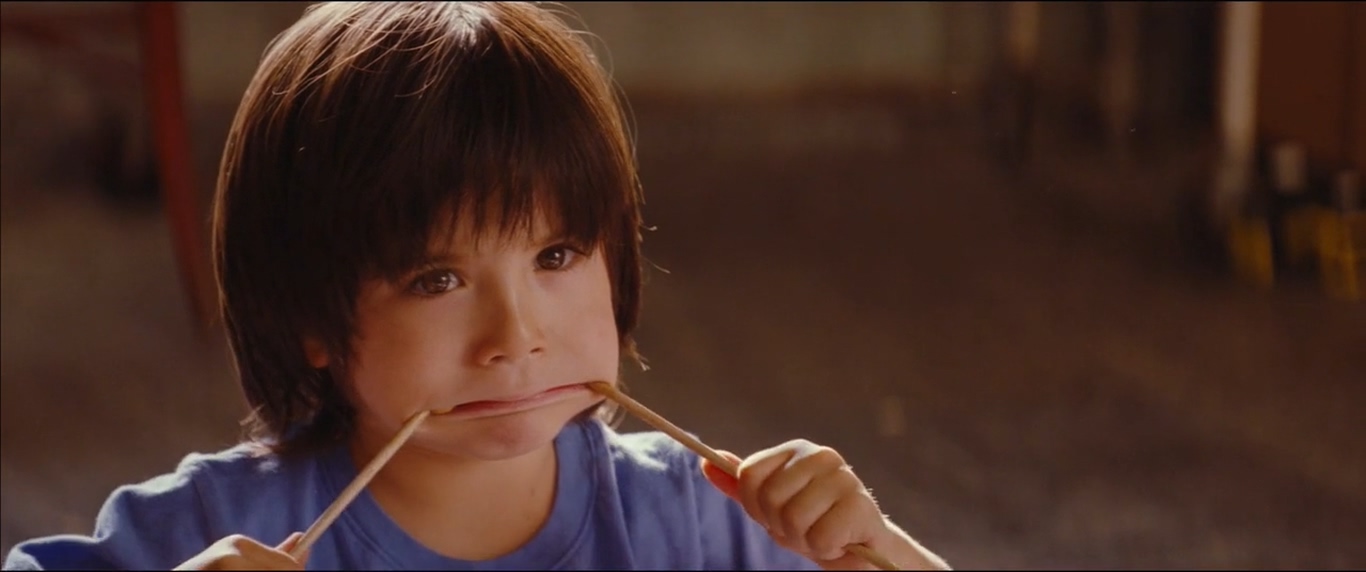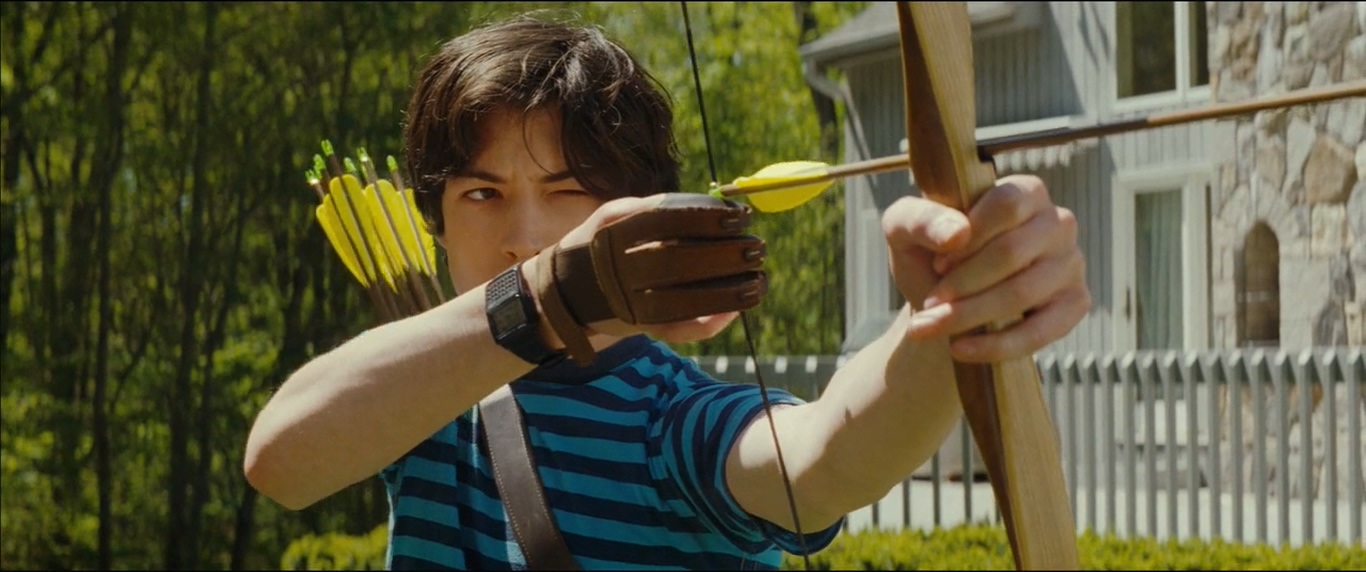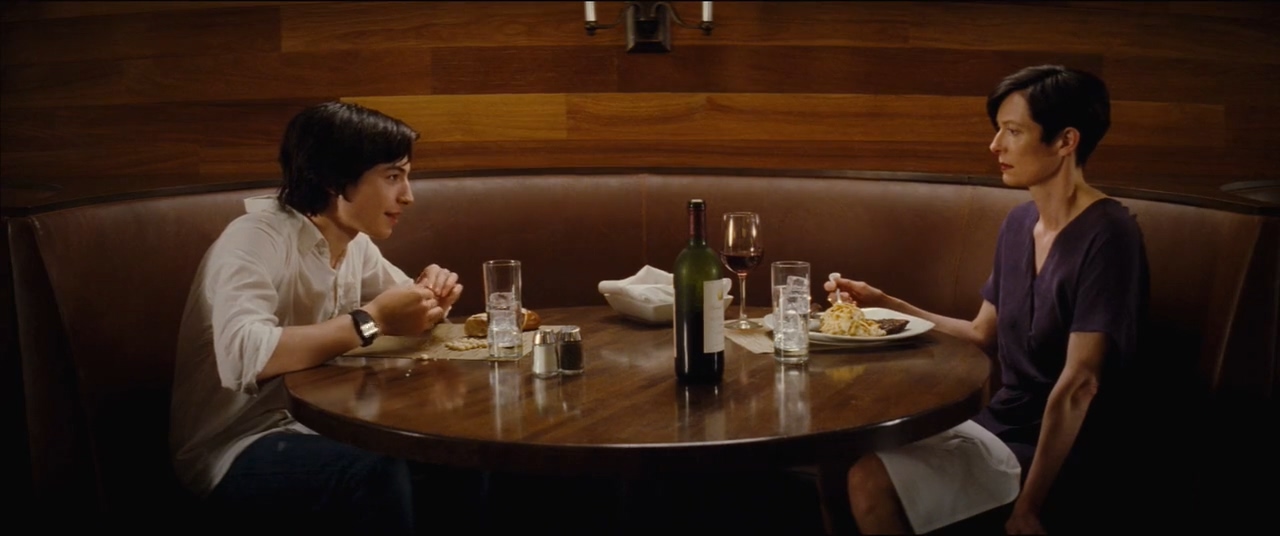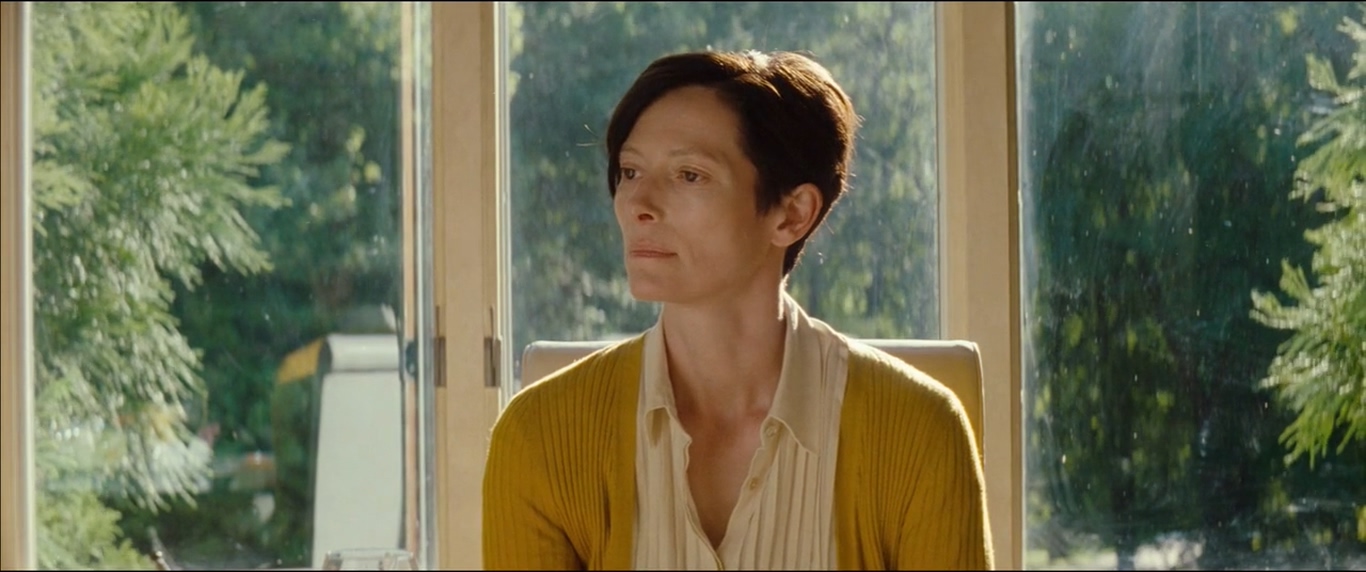Helmed by Scottish filmmaker Lynne Ramsay based on the Orange Prize-winning eponymous 2003 novel by Lionel Shriver, ‘We Need to Talk About Kevin’ is a jarring, erratic, and sometimes profoundly disturbing 2011 psychological thriller that creates an uncanny place in the viewer’s mind. Stripping the screenplay off words, the disturbance arises from a seamless amalgamation of image and sound. The cast ensemble, with Tilda Swinton, John C. Reilly, and Ezra Miller in a menacing role, cannot be praised enough.
Moving back and forth in time, the narrative revolves around a picture-perfect American family, but as the story progresses, we see cracks in the familial structure. The brooding tone of the narrative prepares the audience for a devastating ending, but in hindsight, some of you may have seen it coming. The impressionistic nature of the film does not blurt out the whole truth, and the audience has to make their own journey to construct the meaning. If you are having trouble tying loose ends, let us assist you in the process. SPOILERS AHEAD.
We Need to Talk About Kevin Plot Synopsis
Eva Khatchadourian, a former travelogue writer, lives in a rundown shack in an American suburb and goes to meet her son. Eva takes incessant trips down memory lane to cope with her past loss. The story goes back to the past to recreate the events that led Eva to her present discontent. Eva and Franklin are a happily married couple till Eva gives birth to Kevin. Eva goes into postpartum depression, and her menacing and antisocial kid Kevin only aggravates her ailment. Little Kevin cries relentlessly, and Eva often uses cruel methods to shut him up.

Kevin grows up, and the family moves to an affluent neighborhood in their very own castle. Kevin does not play ball, and he becomes increasingly manipulative. In front of his mother, Kevin is often a difficult, menacing and unresponsive boy. When his father is around, Kevin behaves like a charming and enthusiastic kid. Kevin poops in his pants, and thinking this act to be deliberate, Eva throws him to the ground, breaking his arm. Kevin chooses to conceal the incident from Franklin. After this episode, Eva and Kevin seemingly become more affectionate towards each other.
Kevin grows a liking for the fictional character of Robin Hood, and his father gifts him a bow and arrow. Eva gets pregnant for a second time and gives birth to a little daughter — Celia. Kevin grows up to be ever more distant. One day, Celia loses one of her eyes from toxic cleaning supplies, and Kevin becomes a prime suspect. While Eva is growing increasingly distrustful of Kevin, Franklin sides with his son and their marriage takes a hit. Meanwhile, Kevin is planning something that would shatter Eva’s world forever.
We Need to Talk About Kevin Ending: Why and How Did Kevin Kill His Sister and Father?
Three days before turning 16, Kevin unleashes chaos in his school. Although the act is enhanced through visual obscurity and concealment, we get the idea that Kevin kills a few of his classmates in the locked auditorium. Eva rushes to the school to see Kevin getting arrested. His eyes don’t give away any sense of remorse or guilt. Shortly after, Eva goes back to the house. This is the scene where the film begins — and the ending comes full circle — revisiting the moment of rupture in Eva’s life.

The white curtains create an ambiance of premonition, and as the camera tracks forward, we see Franklin and Celia lying dead in the middle of the back garden, blood-drenched arrows stuck to their bodies like leeches. Through association and contextualization, it becomes evident that Kevin killed his father and sister with the new and powerful bow and arrow that he received as a Christmas present from his father.
However, we don’t really know why Kevin kills his family. When Eva goes to meet Kevin in the detention center, she asks him the same question. Kevin replies that he thought he knew why but now he’s not sure anymore. The most plausible answer is that Kevin killed the family to hurt his mother. Kevin was never the apple of his mother’s eye, which he realized from early childhood.
When Eva gets pregnant for the second time, Kevin feels that he has become estranged from the family and grows jealous. Eva always wanted a daughter, and as her attention moves from Kevin, he becomes more and more begrudging towards his sister. Eva, in turn, becomes more protective of Celia. Kevin overhears his parents talking about a divorce, which adds to his anger towards the world.
However, just the neglect of his mother would not amount to the cathartic finale. Is Kevin a sociopath or a psychopath, then? There are several red flags in the movie that indicates Kevin’s volatile dispositions, but an accurate diagnosis is not possible. According to medical practitioners, psychopaths are born so, while sociopathy is a result of conditioning in childhood. Although these two terms are often used interchangeably in colloquial use, there are some mild differences between these two categories of personality disorders. For example, sociopaths are more erratic, and they don’t make drastic decisions such as Kevin’s.
Kevin, it seems, has a method to his madness. He buys a few locks before the school sabotage and has a decisive plan regarding how to go about it. And as serial killers are often tagged as psychopaths, we assume that the menacing nature of Kevin is dormant in him at birth. Kevin predominantly shows signs of antisocial personality disorder, and when it is left unnoticed by his parents, Kevin’s condition takes a wrong turn.
Did Kevin Eat His Sister’s Eyes?
You couldn’t have possibly thought that seeing someone eat lychee would be so distressing, but Ezra Miller makes it happen. Shortly after the incident with Celia, Kevin and his parents have a confrontation at the dining table. Kevin knows that Celia is his mother’s favorite offspring, and he goes to great lengths to make his mother feel uncomfortable. Kevin eats the lychee with a degree of grossness, and when his mother says that he never liked lychee as a fruit, Kevin has to say that it is an acquired taste.
In reality, Kevin has an acquired taste for sadistic vengeance, and the lychee symbolizes Celia’s eye in the scene. While we are not sure whether Kevin consumed the eye itself, we know from the book that Kevin keeps Celia’s glass eye as a souvenir after assailing her. The film does not show us how Kevin presents the eyeball to Eva in jail. But we can safely assume that Kevin did not literally eat the eyeball.
Why Did Kevin Hate Eva?
Kevin has numerous reasons to hate his mother, Eva. A prolific writer and the ostensible head of a travel agency, Eva cares more about her own unfulfilled wishes than her ever-menacing son. Kevin relentlessly cries in the custody of Eva, but Franklin seems to know how to stop him. When Kevin paints Eva’s room with color splashes, Eva thinks that Kevin wanted to ruin the room, but maybe he really wanted to make it more special. Kevin, it seems, is a volatile Holden Caulfield for the generation.

We see Kevin as a troubled kid who may need greater care. But Eva is incapable of showing him the love that he deserves, even after trying her best. Therefore, when Kevin shows Eva the scar from the childhood accident, he tells her that it is the most honest thing that Eva ever did to him. He hates Eva for a plethora of reasons – her neglect, her coldness towards Kevin, and Franklin’s misguided overcompensation for the lack of Eva’s love. But he hates her the most due to her pretense and dishonesty, it seems.
Why Does Kevin Wear Short Clothes?
Kevin is seen to be wearing short clothes most of the time, like when Eva takes him out for mini-golfing. It may not strike one as something extraordinary, but one needs to understand that Kevin’s mind is wired differently. So, his dressing sense is perhaps not an indictment of his bitterness. The kind of clothes one chooses is also indicative of one’s social status. Kevin chooses to wear only short and cheap garments. Kevin appears in a short sleeve red shirt as a toddler. As he grows up, we see him in a blue t-shirt, and consecutively, in a bland white one. In the next sequence, he appears in a loose white shirt. As Robin Hood, little Kevin appears in a similar-looking shirt. Catherine George managed the costume department impeccably well, with a slight touch of retro.
It seems that Kevin wears old and small clothes to bring her mother’s neglect to the world’s attention. Maybe he is subtly telling others that his mother does not take care of him. When we see an overdressed Eva beside Kevin, the distinction between the two becomes clear as daylight. Also, stripes are a striking feature that connects Kevin’s clothing sense from childhood to adolescence. Stripes provide Kevin’s character a continuity while shedding light upon his individuality. Kevin’s clothes are also an avenue to memories for Eva, and in the end, Eva irons and stacks up Kevin’s clothes in a drawer in the hope that her son will return from prison. Kevin and Eva look similar, and in many scenes, Kevin and Eva wear similar clothes. Therefore, the sense of clothing provides a link between the otherwise antagonistic mother and son. In a film otherwise devoid of hope, these subtle suggestions give the audience a sense of comfort.
Read More: Best Movies About Mental Illness

